It looks like you're using an Ad Blocker.
Please white-list or disable AboveTopSecret.com in your ad-blocking tool.
Thank you.
Some features of ATS will be disabled while you continue to use an ad-blocker.
share:
As most of you who had seen my threads on the African past will note that I gave Africans and African Americans much props dispelling the myths of
Blacks as mere victims or non participants in history , I made threads about African civilizations, Black rebellions and the struggle to become and
remain free, but the story is not complete, history like people are very complex so the below have to be made known.
Every now and then, questions are raised about the African involvement in the Slave trade, sometimes we got varying excuses of maybe they didn't know the extent of the cruelty of the practice overseas , as being different from their own or were they forced to carry out such trade, lemme give you the short answer, No! on both counts these, Kings and high royals knew how inhumane it was not their own ppl they were selling they believed those other were not really them, they were not pan Africanist , some had their own business men in European and New world capitols overseeing their interest in much the same way any mullt national corporation would have their reps stationed in nations around the world today,much of those post medieval paintings and sculptures in European capitols were of prominent diplomats and businessmen much of the time wearing two hats.
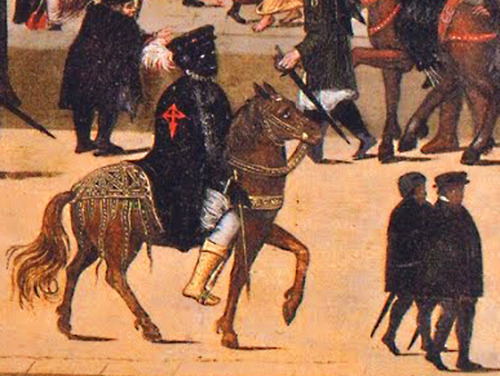
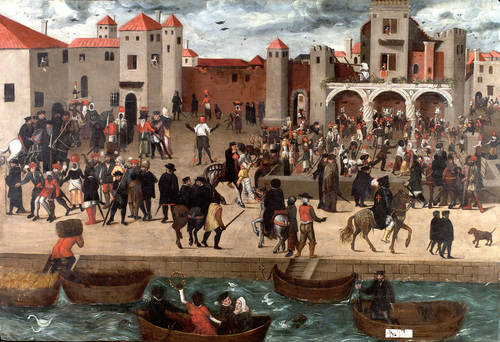
Chafariz d’el Rey in the Alfama District (View of a Square with the Kings Fountain in Lisbon), ca. 1570-88,
jp.pinterest.com...
This is Libson in late medieval time if you note the Black knights as well as slaves milling about , these were from the Kingdom of the Kongo a flourishing civilization that traded embassies with the Vatican and Portugal , it's princes and other high royals made war on other kingdoms for the sole purpose of obtaining slaves, sometimes in opposition to their kings.
But one may say surely Africans royals were a different thing, surely a person born out of that experience would never involve oneself in that system..wrong below is the story of southern planters not counting those in the Caribbean with vast slave holdings.
Largest African American Slave Owner And Breeder.
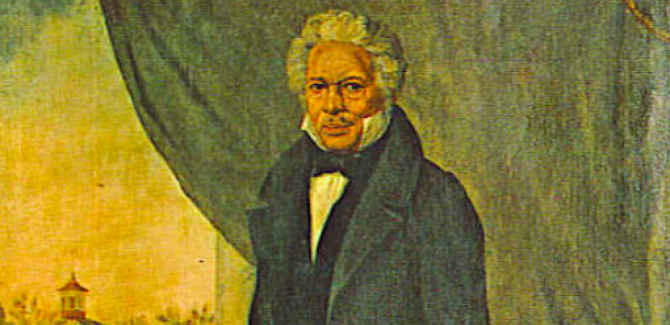
Suggest you klik the link there are 4pgs of good information in there.
Every now and then, questions are raised about the African involvement in the Slave trade, sometimes we got varying excuses of maybe they didn't know the extent of the cruelty of the practice overseas , as being different from their own or were they forced to carry out such trade, lemme give you the short answer, No! on both counts these, Kings and high royals knew how inhumane it was not their own ppl they were selling they believed those other were not really them, they were not pan Africanist , some had their own business men in European and New world capitols overseeing their interest in much the same way any mullt national corporation would have their reps stationed in nations around the world today,much of those post medieval paintings and sculptures in European capitols were of prominent diplomats and businessmen much of the time wearing two hats.


Chafariz d’el Rey in the Alfama District (View of a Square with the Kings Fountain in Lisbon), ca. 1570-88,
jp.pinterest.com...
This is Libson in late medieval time if you note the Black knights as well as slaves milling about , these were from the Kingdom of the Kongo a flourishing civilization that traded embassies with the Vatican and Portugal , it's princes and other high royals made war on other kingdoms for the sole purpose of obtaining slaves, sometimes in opposition to their kings.
But one may say surely Africans royals were a different thing, surely a person born out of that experience would never involve oneself in that system..wrong below is the story of southern planters not counting those in the Caribbean with vast slave holdings.
Largest African American Slave Owner And Breeder.

One of the most vexing questions in African-American history is whether free African Americans themselves owned slaves. The short answer to this question, as you might suspect, is yes, of course; some free black people in this country bought and sold other black people, and did so at least since 1654, continuing to do so right through the Civil War. For me, the really fascinating questions about black slave-owning are how many black "masters" were involved, how many slaves did they own and why did they own slaves?
The answers to these questions are complex, and historians have been arguing for some time over whether free blacks purchased family members as slaves in order to protect them -- motivated, on the one hand, by benevolence and philanthropy, as historian Carter G. Woodson put it, or whether, on the other hand, they purchased other black people "as an act of exploitation," primarily to exploit their free labor for profit, just as white slave owners did. The evidence shows that, unfortunately, both things are true. The great African-American historian, John Hope Franklin, states this clearly: "The majority of Negro owners of slaves had some personal interest in their property." But, he admits, "There were instances, however, in which free Negroes had a real economic interest in the institution of slavery and held slaves in order to improve their economic status."
~~~~
These guys were, to put it bluntly, opportunists par excellence: As Noah Andre Trudeau and James G. Hollandsworth Jr. explain, once the war broke out, some of these same black men formed 14 companies of a militia composed of 440 men and were organized by the governor in May 1861 into "the Native Guards, Louisiana," swearing to fight to defend the Confederacy. Although given no combat role, the Guards -- reaching a peak of 1,000 volunteers -- became the first Civil War unit to appoint black officers.
www.theroot.com...
Suggest you klik the link there are 4pgs of good information in there.
edit on 28-2-2016 by Spider879 because: (no reason
given)
edit on Sat Mar 5 2016 by DontTreadOnMe because: trimmed overly long quote
IMPORTANT: Using Content From Other Websites on ATS
I wasn't sure what to expect when opening the thread, good read and slavery has been in practice since the beginning and is still in practice today
both direct and indirect slavery.
Will be following the thread.
Will be following the thread.
originally posted by: onequestion
I wasn't sure what to expect when opening the thread, good read and slavery has been in practice since the beginning and is still in practice today both direct and indirect slavery.
Will be following the thread.
This was a fitting discussion to the last day of Black history month, the good the bad and the ugly need to be shown.
Excellent OP. Few are willing to speak of this but in truth, white or black it is about greed and keeping your status.
Also rarely mentioned are the Irish slaves who were treated worse than black slaves and were less valuable to owners than black slaves.
Will also follow.
Also rarely mentioned are the Irish slaves who were treated worse than black slaves and were less valuable to owners than black slaves.
Will also follow.
originally posted by: liveandlearn
Excellent OP. Few are willing to speak of this but in truth, white or black it is about greed and keeping your status.
Also rarely mentioned are the Irish slaves who were treated worse than black slaves and were less valuable to owners than black slaves.
Will also follow.
Yes I have to step out be back with some thing of the Irish slaves later.
a reply to: liveandlearn
Well in pre and even post Medieval times Blacks owning white slaves was nothing uncommon, rich African lords below the Sahara made purchases of non African and European slaves, these were not agricultural slaves to be certain but more for some rich guy's decorative effect or harem , in this females would figure more so than males, the Males would be purchased as body guards, and in the case of Mai Idris Alooma of kanem bornu empire who bought shock troops from the white Slave dynasty in Islamic era Egypt called Mameluks, these came from places like Albania and the Caucasus, he also enslaved migrating Arab tribesmen and marched them south into Nigeria where they ended up on slave ships bound for the new world.
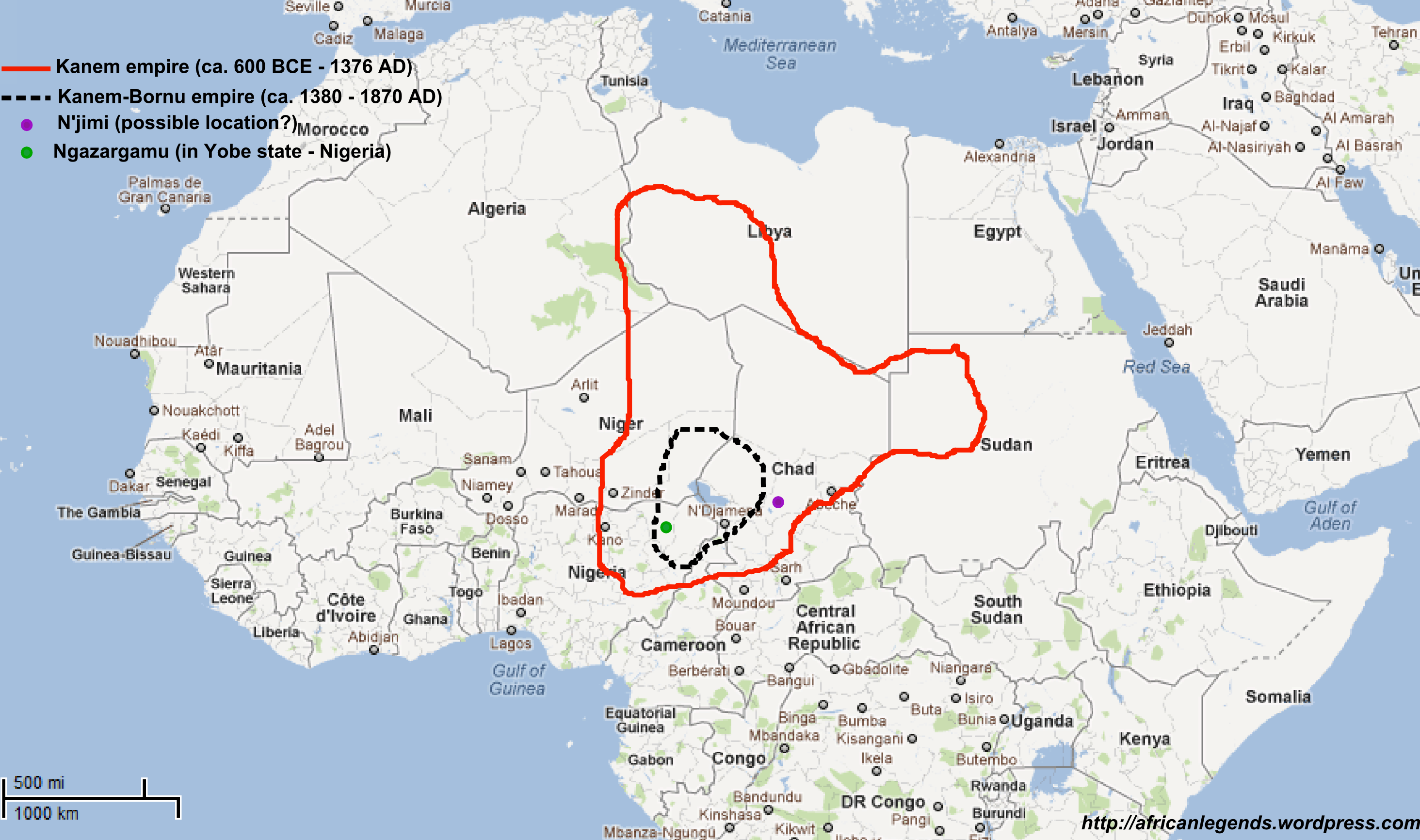
The Empire at it's largest marked in red, of the ;P. 43 According to Ibn Sa’id,
Quote:
the authority of the sultan of Kanim extended over Kawar and Fazzan, and the Berbers were slaves of the king of Kanim. He confirmed that during period of strength Kanim expanded northward into the Sahara, rather than southward.
page 44
And North African sea rovers extended their operations as far north as Ireland.
But in the new world Irish slaves were in many instances treated worst then their African counter part, there are many reasons for this one being their faith the divide between Catholics and Protestants was much more turbulent than anything today, second they were rebellious so anything thrown at them were fair game in the eye of their English overlords, this include putting them under Black task masters, a practice common in the Caribbean another Irish Slaves were not bound for life so the idea was to get more out of them even if it meant death, 3rd much of the African slaves at least i the Caribbean were skilled craftsmen, another effect of this hatred for the Irish was to use them as fodder in the Maroon wars with Blacks stationed at their backs with order to shoot any Irishman that shirk his duty , the Blacks were often given the rank of NCOs but denied to Irishmen.
Well in pre and even post Medieval times Blacks owning white slaves was nothing uncommon, rich African lords below the Sahara made purchases of non African and European slaves, these were not agricultural slaves to be certain but more for some rich guy's decorative effect or harem , in this females would figure more so than males, the Males would be purchased as body guards, and in the case of Mai Idris Alooma of kanem bornu empire who bought shock troops from the white Slave dynasty in Islamic era Egypt called Mameluks, these came from places like Albania and the Caucasus, he also enslaved migrating Arab tribesmen and marched them south into Nigeria where they ended up on slave ships bound for the new world.

The Empire at it's largest marked in red, of the ;P. 43 According to Ibn Sa’id,
Quote:
the authority of the sultan of Kanim extended over Kawar and Fazzan, and the Berbers were slaves of the king of Kanim. He confirmed that during period of strength Kanim expanded northward into the Sahara, rather than southward.
page 44
And North African sea rovers extended their operations as far north as Ireland.
According to C.B. Driscoll,these sea rovers raided Baltimore castle in 1631 and their Negro cheif,Ali Krussa, carried off off Mary daughter of Sir Fineen O,Driscoll,master of the castle.
Some of these white European women were taken into the harems of the sultans ,and rose to positions of great influence.one of the most noted was Shams Ed Douha(the morning sun)favorite wife of Abu Hassan Ali,the renouned "Black Sultan".Their joint tomb at Shella is one of the architectual gems of Morocco.
From J.A Rogers Sex and Race vol.1
But in the new world Irish slaves were in many instances treated worst then their African counter part, there are many reasons for this one being their faith the divide between Catholics and Protestants was much more turbulent than anything today, second they were rebellious so anything thrown at them were fair game in the eye of their English overlords, this include putting them under Black task masters, a practice common in the Caribbean another Irish Slaves were not bound for life so the idea was to get more out of them even if it meant death, 3rd much of the African slaves at least i the Caribbean were skilled craftsmen, another effect of this hatred for the Irish was to use them as fodder in the Maroon wars with Blacks stationed at their backs with order to shoot any Irishman that shirk his duty , the Blacks were often given the rank of NCOs but denied to Irishmen.
edit
on 28-2-2016 by Spider879 because: (no reason given)
a reply to: Spider879
Thank you for the information. What I knew was rudimentary compared to the information you are bringing. But I must say it still speaks to the greed of man and maintaining status. Race is of no consequence tho whites generally had more money to purchase slaves to increase their wealth and status.
I grew up in a southern state with grandparents who were southern for many generations. Told at the age of 12 that we were better than black people. I stood there boldly and told my grandmother "they are just people like we are" I new only a little about what was going from tv but didn't understand.
The idea of looking down at anyone as not as worthy as yourself is abhorrent, yet, here we are, all slaves to the system. And the system keeps the black community down with their conditional welfare...pay for all children as long as there is no father in the home. The slavery continues disguised as benevolent welfare. It doesn't encourage upward mobility but only maintaining the status quo
Thank you for the information. What I knew was rudimentary compared to the information you are bringing. But I must say it still speaks to the greed of man and maintaining status. Race is of no consequence tho whites generally had more money to purchase slaves to increase their wealth and status.
I grew up in a southern state with grandparents who were southern for many generations. Told at the age of 12 that we were better than black people. I stood there boldly and told my grandmother "they are just people like we are" I new only a little about what was going from tv but didn't understand.
The idea of looking down at anyone as not as worthy as yourself is abhorrent, yet, here we are, all slaves to the system. And the system keeps the black community down with their conditional welfare...pay for all children as long as there is no father in the home. The slavery continues disguised as benevolent welfare. It doesn't encourage upward mobility but only maintaining the status quo
edit on 28-2-2016 by liveandlearn because: (no
reason given)
I found this information in your source
interesting:
This interesting for a couple of reasons. The first reason is that this is a perfect example of how the white master's DNA became intermingled with his slaves. A large proportion of the African-American community has some amount of Northern European (white) DNA in their admixture. Right off the top of my head, I recall that at least 20% of black men in this country have a Y-STR DNA marker that goes back to white European ancestry.
Another reason this is interesting is because it shows how "mixed" blacks were treated by whites, and how conversely they treated their own slaves. A quasi-racial-hierarchy existed between blacks of different racials mixes, expressed as the shades of color of their skin. Light skin and dark skin blacks disliked each other nearly as much as whites and blacks of that time. The notion of a homogeneous "colored" race is a post-bellum/post-reconstruction concept.
In essence, I suspect that some of these slaveholders who owned slaves for the purpose of profit felt no solidarity with their black slaves because they believed their light skin made them superior.
I believe this idea of black intra-community racism is another aspect of black history that has been glossed over.
This is a great thread! I'll be watching it with interest.
-dex
(emphasis mine)
John Carruthers Stanly -- born a slave in Craven County, N.C., the son of an Igbo mother and her master, John Wright Stanly -- became an extraordinarily successful barber and speculator in real estate in New Bern. As Loren Schweninger points out in Black Property Owners in the South, 1790-1915, by the early 1820s, Stanly owned three plantations and 163 slaves, and even hired three white overseers to manage his property! He fathered six children with a slave woman named Kitty, and he eventually freed them. Stanly lost his estate when a loan for $14,962 he had co-signed with his white half brother, John, came due. After his brother's stroke, the loan was Stanly's sole responsibility, and he was unable to pay it.
This interesting for a couple of reasons. The first reason is that this is a perfect example of how the white master's DNA became intermingled with his slaves. A large proportion of the African-American community has some amount of Northern European (white) DNA in their admixture. Right off the top of my head, I recall that at least 20% of black men in this country have a Y-STR DNA marker that goes back to white European ancestry.
Another reason this is interesting is because it shows how "mixed" blacks were treated by whites, and how conversely they treated their own slaves. A quasi-racial-hierarchy existed between blacks of different racials mixes, expressed as the shades of color of their skin. Light skin and dark skin blacks disliked each other nearly as much as whites and blacks of that time. The notion of a homogeneous "colored" race is a post-bellum/post-reconstruction concept.
In essence, I suspect that some of these slaveholders who owned slaves for the purpose of profit felt no solidarity with their black slaves because they believed their light skin made them superior.
I believe this idea of black intra-community racism is another aspect of black history that has been glossed over.
This is a great thread! I'll be watching it with interest.
-dex
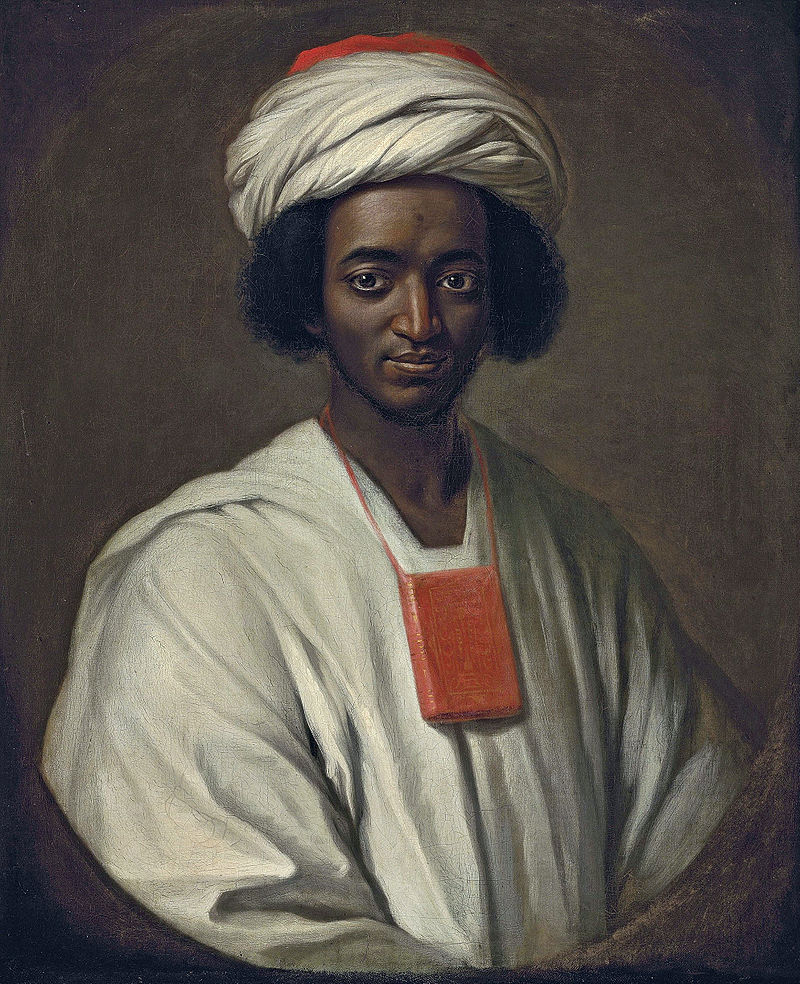
This is Ayuba Suleiman Diallo, called Job ben Solomon (1701-1773)
An African high aristocrat
the Gambia River to trade slaves and paper. While visiting some friends on their return trip, Ayuba and Yoas were captured by invading Mandingoes.[1] The invaders shaved their heads to make them appear as war captives, and thereby supposedly legitimately enslavable, as opposed to their actual condition of people captured in a kidnapping raid for the specific purpose of selling slaves for financial profit. The two men were sold to factors of the Royal African Company. Ayuba subsequently convinced English Captain Pike of his high social status, and explained his father was capable of paying ransom. Pike granted Ayuba leave to find someone to send word to Ayuba’s family. Since the messenger did not return in time, at the behest of Captain Henry Hunt, Pike’s superior, Ayuba and Loumein were sent across the Atlantic to Annapolis, Maryland, where he was delivered to another factor, Vachell Denton.
Ayuba was then purchased by Mr. Tolsey of Kent Island, Maryland. Ayuba was initially put to work in the tobacco fields; however, after being found unsuitable for such work, he was placed in charge of the cattle. While in captivity, Ayuba used to go into the woods to pray. However, after being humiliated by a child while praying, Ayuba ran away and was captured and imprisoned at the Kent County Courthouse. It was there that he was discovered by a lawyer, Rev. Thomas Bluett of the Anglican Society for the Propagation of the Gospel, traveling through on business.
The lawyer was impressed by Ayuba's ability to write in Arabic. In the narrative, Bluett writes the following:
Upon our Talking and making Signs to him, he wrote a Line or two before us, and when he read it, pronounced the Words Allah and Mahommed; by which, and his refusing a Glass of Wine we offered him, we perceived he was a Mahometan, but could not imagine of what Country he was, or how he got thither; for by his affable Carriage, and the easy Composure of his Countenance, we could perceive he was no common Slave.
When another African who spoke Wolof, a language of a neighboring African ethnic group, was able to translate for him, it was then discovered that he had aristocratic blood. Encouraged by the circumstances, Mr. Tolsey allowed Ayuba to write a letter in Arabic to Africa to send to his father. Eventually, the letter reached the office of James Oglethorpe, Director of the Royal African Company. After having the letter authenticated by John Gagnier, the Laudian Chair of Arabic at Oxford, Oglethorpe purchased Ayuba for ₤45.
. Due to his intelligence and monetary prowess, and Englishmen's desire to use him to increase their own profits in trade on the coast of Africa, he was able to legally escape the hardships of slavery and return home to Africa.
en.wikipedia.org...
The above is wiki sourced but in this case matched up with text I had, so it's ok,
Now here we have a slaver who in turned got him self enslaved ,but because of his position as an aristocrat would not only escaped the harshness of slavery but was set free, it's the familiar ol story of the rich looking out for each other and what did he do with his refound freedom??...went back in to the slave trade business.
Here is something to keep in mind and as painful as it is to know it, White ppl snatching Africans willy nilly from some village is mostly myth, first there were powerful states and bureaucracy to contend with, European traders found this out from a very early time, because in some cases they were evenly matched not until after the repeating rifles and Gatling guns,did they stood a chance. an early example.
THE AFRICAN SLAVE TRADE
The First Slaving Expeditions to[West Africa
by Anthony A. Lee
"Kidnapping [people] from the African coast was part of European
practice even before Portuguese ships had explored the coast of
the continent or discovered a new route to India. One of the
first expeditions to the Senegal River, led by the Portuguese
in 1444, brutally seized the black residents of several off-shore
islands near the river and carried them off to be sold as slaves.
Other expeditions from Europe about this time did more or less
the same.
But it was not long before African armies became aware of the
new dangers, and Portuguese ships began to meet their match.
For example, in 1446, two years later, a ship commanded by Nuno
Tristao attempted to land in the Senegal region. It was attacked
by African fighters in canoes, and the crew of the ship was
wiped out. And in 1447, a Danish raider commanding a Portuguese
ship was killed, along with most of his crew, when local African
boats attacked.
Although African vessels -- mostly canoes -- were not designed
for high-seas navigation, they were fully capable of protecting
the coast, even in the 15th century. As a result, in 1456, the
king of Portugal dispatched his ambassador, Diogo Gomes, to
negotiate treaties of peace and trade with the African rulers
along the coast."
Aloysio Cadamusto , barely escaped with his life when an African navy attacked his vessels in very large ocean going vessels numbering 150 men each , with poisoned tipped arrows he did some masterful maneuvers that split their ocean going canoes in two so he could sail between them, don't think of these as simple canoes these were no small affair.they were huge deep and wide transporting horse and the like.
European slave castles were not their own, they were constructed by them, but they had to pay rent and could be removed by the local ruler.
The Kings and high royals could turn on and off the slave trade when displeased , operative word here is trade
Here is a good vid from sometime ago about the African side of the trade.
edit on 29-2-2016 by Spider879 because: (no reason given)
a reply to: Spider879
One would think these facts ought to defuse some of the vitriol and venom blacks had and still hold to this day for whites.
Sure to be a delicate subject since white ownership of black slaves seems to be the root of much resentment, as it should, but knowing this, perhaps not quite as much?
I see very few members willing to touch this thread with a ten foot pole.
One would think these facts ought to defuse some of the vitriol and venom blacks had and still hold to this day for whites.
Sure to be a delicate subject since white ownership of black slaves seems to be the root of much resentment, as it should, but knowing this, perhaps not quite as much?
I see very few members willing to touch this thread with a ten foot pole.
a reply to: DexterRiley
While I am fatigued by slave era movies about black victims a good movie of anyone of these families need to be made I would go with the story of William Ellison myself.
While I am fatigued by slave era movies about black victims a good movie of anyone of these families need to be made I would go with the story of William Ellison myself.
originally posted by: Urantia1111
a reply to: Spider879
One would think these facts ought to defuse some of the vitriol and venom blacks had and still hold to this day for whites.
Sure to be a delicate subject since white ownership of black slaves seems to be the root of much resentment, as it should, but knowing this, perhaps not quite as much?
I see very few members willing to touch this thread with a ten foot pole.
I believe in showing warts and all, we are all undeserved by the missing pgs of history.
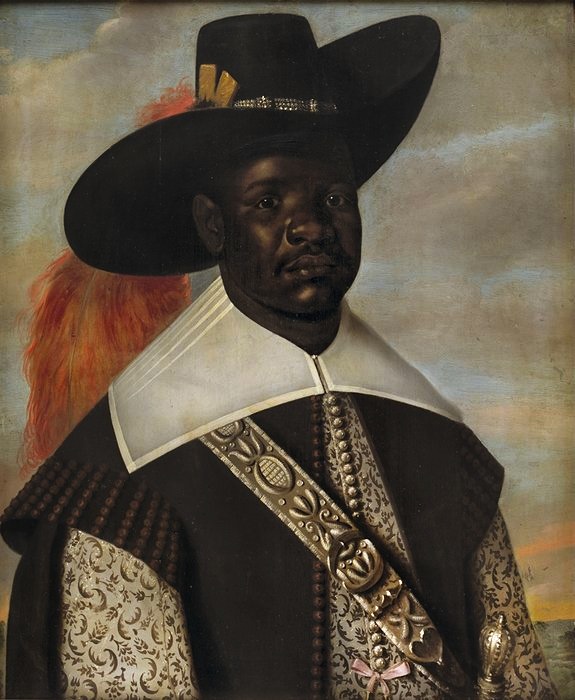
Forgot to add this to the first post.
The above is Don Meguel de Castro an aristocrat who traveled to Brazil and then the Netherlands overseeing his father's business who was a trader in slaves and on diplomatic mission to smooth things over with his European partners after his father the governor of the Sonho Provence of the Kingdom of
the Kongo turned off the slave trade like one would a tap in 1643 .
When you hear of the Kongo today a place that is a by word for instability and cruelty on a massive scale thank the likes of guys like the above and his daddy, who set that tragedy in motion the Kongo was not always a place of darkness, they were done in by greed and corruption on a massive scale, provinces rebelled the kingdom broke up, ethnic and tribal groups declared their independence and warred and enslaved each other, think off the Balkans some yrs back. Btw there was a presence of Christian Slaves that ended up in the U.S some of whose member helped kicked started one of the longest internal war to date called the Stoner rebellion which continued into the Seminole wars.
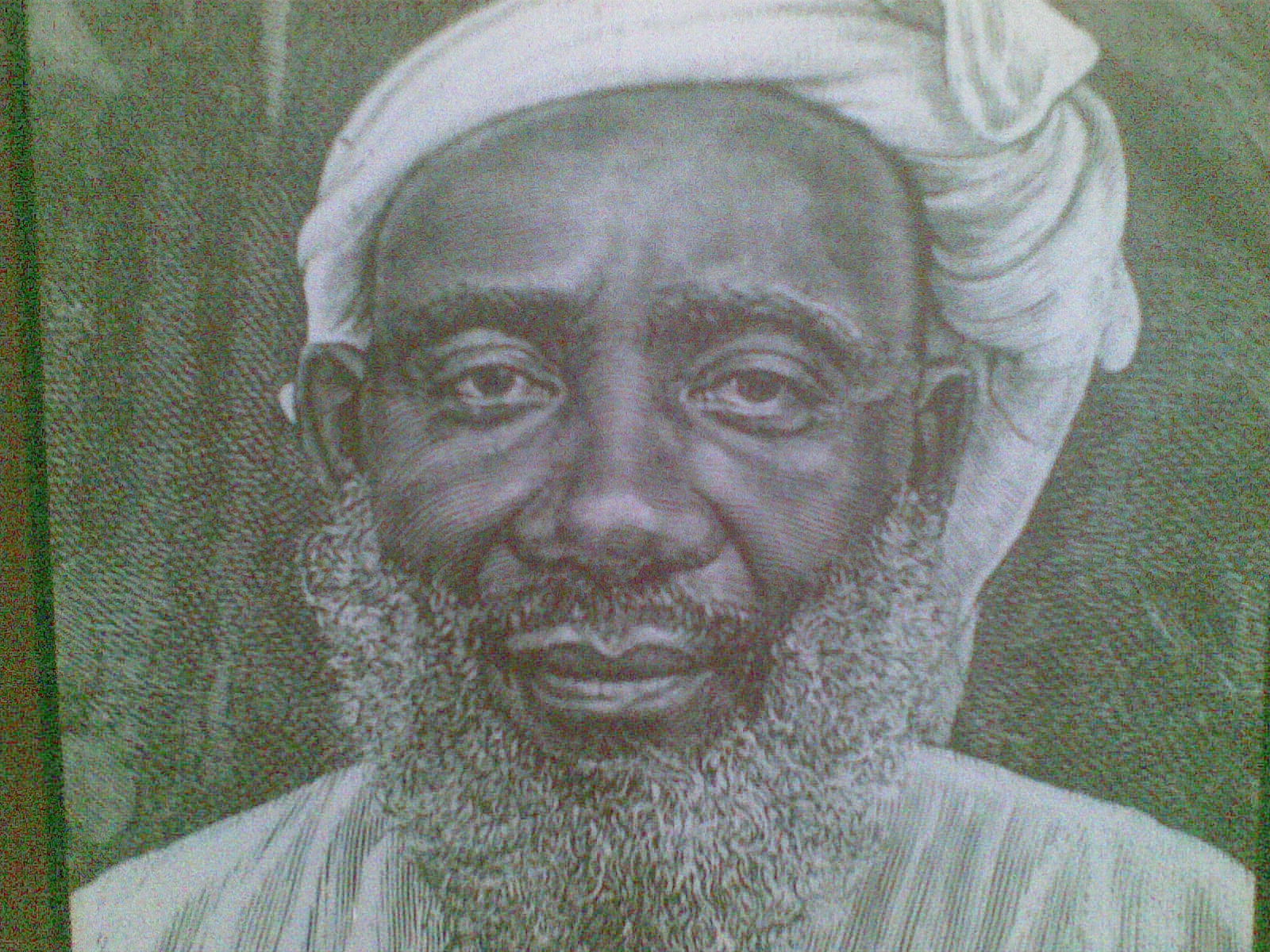
Some 200yrs later , Tippu Tib a notorious slave trader invaded from the Swahili state of Zanzibar from the east enslaving tens of thousands and further destabilizing the population causing them to be merciless to wandering strangers, he incidentally helped Henry Morton Stanley explored the interior, which in turn made it ripe of colonization and plunder by European powers.
edit on 29-2-2016 by Spider879 because: (no reason
given)
a reply to: Spider879
And basically, the exact same sort of trade in flesh has always been a business of humans in power, whether in the Far East, Africa or with Native American tribes and their raiding parties in North America. Some were very business like, some casual within the house, but the bottom line was always the same.
I suggest that it is a basic inclination in human nature that springs from the original parent-child relationship. Pretty much the same reason people like to own pets...power over others.
And basically, the exact same sort of trade in flesh has always been a business of humans in power, whether in the Far East, Africa or with Native American tribes and their raiding parties in North America. Some were very business like, some casual within the house, but the bottom line was always the same.
I suggest that it is a basic inclination in human nature that springs from the original parent-child relationship. Pretty much the same reason people like to own pets...power over others.
Even here in this country, the vast majority of people did not own slaves. Most white people were just trying to make a living. White people are
slaves to society more than they think. If you borrow money, you become a slave to the ones you borrow it from. Basically the banks. You spend all
your time trying to repay a debt on something you do not really need, buying a cheaper house would be just fine.
a reply to: Spider879
But, But, your OP does'nt fit in with what I've been spoon fed my whole life about whitey being evil slave owners and the South seceding from the Union because they wanted to keep their slaves! Thanks alot for shattering my nonexistent white guilt and priviledge.
Seriously though nice thread. It makes my heart happy when people know their history.
But, But, your OP does'nt fit in with what I've been spoon fed my whole life about whitey being evil slave owners and the South seceding from the Union because they wanted to keep their slaves! Thanks alot for shattering my nonexistent white guilt and priviledge.
Seriously though nice thread. It makes my heart happy when people know their history.
a reply to: Cancerwarrior
thats because he is cherry picking a few from history with the edict being that, 'because blacks had black slaves it was cool for whites to keep black slaves', rather than all slavery, at any time was and still is wrong.
thats because he is cherry picking a few from history with the edict being that, 'because blacks had black slaves it was cool for whites to keep black slaves', rather than all slavery, at any time was and still is wrong.
originally posted by: Spider879
originally posted by: onequestion
I wasn't sure what to expect when opening the thread, good read and slavery has been in practice since the beginning and is still in practice today both direct and indirect slavery.
Will be following the thread.
This was a fitting discussion to the last day of Black history month, the good the bad and the ugly need to be shown.
You should also look a bit closer at the first legal slave owner in the US, Anthony Johnson. He's mentioned briefly in your post but it's an interesting story that deserves a bit more attention.
originally posted by: stinkelbaum
a reply to: Cancerwarrior
thats because he is cherry picking a few from history with the edict being that, 'because blacks had black slaves it was cool for whites to keep black slaves', rather than all slavery, at any time was and still is wrong.
That doesn't come across at all. I see nothing in the post that supports or excuses white people owning slaves. The poster is simply highlighting that there is far more to the story than many want you to believe.
Historically, plenty of white people also owned white slaves, by the way.
In fact, while there were approximately 12.5 million Africans shipped to the US throughout that period of US history, there are currently and as we speak an estimated 27 million people still considered slaves.
The following is an intriguing read though I can't really speak for it's credibility as a source:
Slavery Today
new topics
-
Democrats send letter to Biden urging him to ratify Equal Rights Amendment
US Political Madness: 1 hours ago
top topics
-
Reprehensible Behavior
US Political Madness: 12 hours ago, 10 flags -
This is adorable you guys!
General Chit Chat: 12 hours ago, 8 flags -
Defending the need for adherence to Old Testament commandments under the new covenant of Christ
Conspiracies in Religions: 14 hours ago, 5 flags -
Democrats send letter to Biden urging him to ratify Equal Rights Amendment
US Political Madness: 1 hours ago, 0 flags
active topics
-
George Stephanopoulos and ABC agree to pay $15 million to settle Trump defamation suit
Mainstream News • 25 • : Echo007 -
Democrats send letter to Biden urging him to ratify Equal Rights Amendment
US Political Madness • 1 • : Echo007 -
Light from Space Might Be Travelling Instantaneously
Space Exploration • 27 • : 777Vader -
Defending the need for adherence to Old Testament commandments under the new covenant of Christ
Conspiracies in Religions • 24 • : FullHeathen -
-@TH3WH17ERABB17- -Q- ---TIME TO SHOW THE WORLD--- -Part- --44--
Dissecting Disinformation • 3713 • : 777Vader -
Rant. I am sick of people saying the police are revenue raising.
Rant • 12 • : inflaymes69 -
Reprehensible Behavior
US Political Madness • 10 • : nugget1 -
Drones everywhere in New Jersey ---and Elsewhere Master Thread
Aliens and UFOs • 174 • : nugget1 -
The Mystery Drones and Government Lies --- Master Thread
Political Conspiracies • 106 • : cherokeetroy -
Statements of Intent from Incoming Trump Administration Members - 2025 to 2029.
2024 Elections • 45 • : WeMustCare
